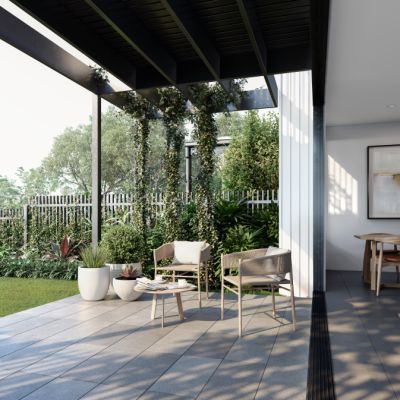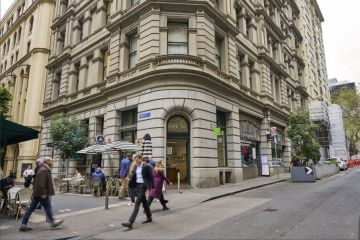Development industry veterans on coronavirus and how it will impact on property

The property industry has been shaken by its fair share of economic downturns, but veterans of the development sector say the COVID-19 pandemic won’t be as disastrous as those in the past.
Many of them have weathered the storms of the GFC, the 1990-91 recession and even the 1987 stock market crash. However, senior figures in the property development industry say the coronavirus crisis is an entirely different beast and one they predict won’t have the lasting consequences of past economic upheavals.
Here, they share their thoughts on the market and predictions for the future.
Colliers Brisbane director Andrew Scriven: “I like to remind everyone that it is a health crisis that is turning into an economic crisis, but aside from that the fundamentals of property are still solid.”
With 25 years under his belt, Andrew Scriven has overseen a whopping 30,000 property transactions. He relates the current climate to the most recent major economic upset, the GFC, but says there is a huge difference between the two.
“The GFC was perhaps the most significant crisis of recent times and it related to liquidity, something that is highly relevant for both developers and buyers so there were limited opportunities,” he said.
“It took years for the market to regain confidence and recover from the losses suffered.
“However, COVID19 is really a health crisis. There is still liquidity and we are confident that this will improve further as all industries go back to work and the economy recovers.”
A lack of consumer confidence is plaguing the industry, but Scriven says this is being somewhat counterbalanced by low interest rates.
“Money is cheap and everyone needs shelter so I expect the negative effects to be relatively short-term,” he said.
“What we are suffering from is a lack of confidence. There are buyers out there, they are just cautious and that is absolutely understandable.”
CBRE managing director, residential projects Australia David Milton: “I think what we’re going to see is probably flatter growth, but good property will sell because there’ll be good demand.”
Overseas interest in Australia has ebbed and flowed in the 30 years David Milton has been in the property game. Although it’s difficult to predict what lies ahead after the COVID-19 period is over, Milton is confident more investors will turn to Australia.
“One thing that will come out of this is there will be a lot more people out of China and Hong Kong wanting to spend their money in what they deem a safe country and with our dollar being so low,” he said.
“We’ve seen that already with inquiry that has increased.”
The Sydney-based agent was just starting out in the industry when the 1990-91 recession saw property values plummet by 9.6 per cent and interest rates soar to 17 per cent.
With today’s interest rates remaining low and the government pulling the strings on the lockdown measures, Milton says there is good reason to hope Australia’s economy will recover quickly.
“Unlike a recession where you don’t know when it will end, this has been a government-forced shutdown to deal with the effects of the pandemic and while the effects will be significant, the economy will crank up very quickly,” he said.
“That’s not to say it will recover to where it was, but people with jobs will be confident and confident about buying real estate.”
Three Sixty Property Group founder John Meagher: “We’ll really feel the effects come the start of October, November, towards the end of the year once the JobKeeper and JobSeeker programs come to an end.”
John Meagher has spent more than 30 years in the property industry and whenever someone asks for investment advice, he tells them to play the long game. This is especially the case during the uncertainty due to COVID-19 restrictions.
“With real estate investment, I’ve always advocated a long-term investment strategy with a minimum of five years,” he said.
“I think the next six months is certainly going to be tough, but the market will start to recover next year.
“I think if you’re buying real estate when no one else is buying, there are generally some good buying opportunities.”
In addition to prices softening, Meagher says he expects an undersupply in the apartment market and this could present some good opportunities for buyers.
“Investors will start to see some really good buying in the residual stock and once the economy bounces back, which I think it will do reasonably quickly towards the middle of next year, I think there will be some great opportunities for buying and buying off the plan,” he said.
We recommend
We thought you might like
States
Capital Cities
Capital Cities - Rentals
Popular Areas
Allhomes
More










